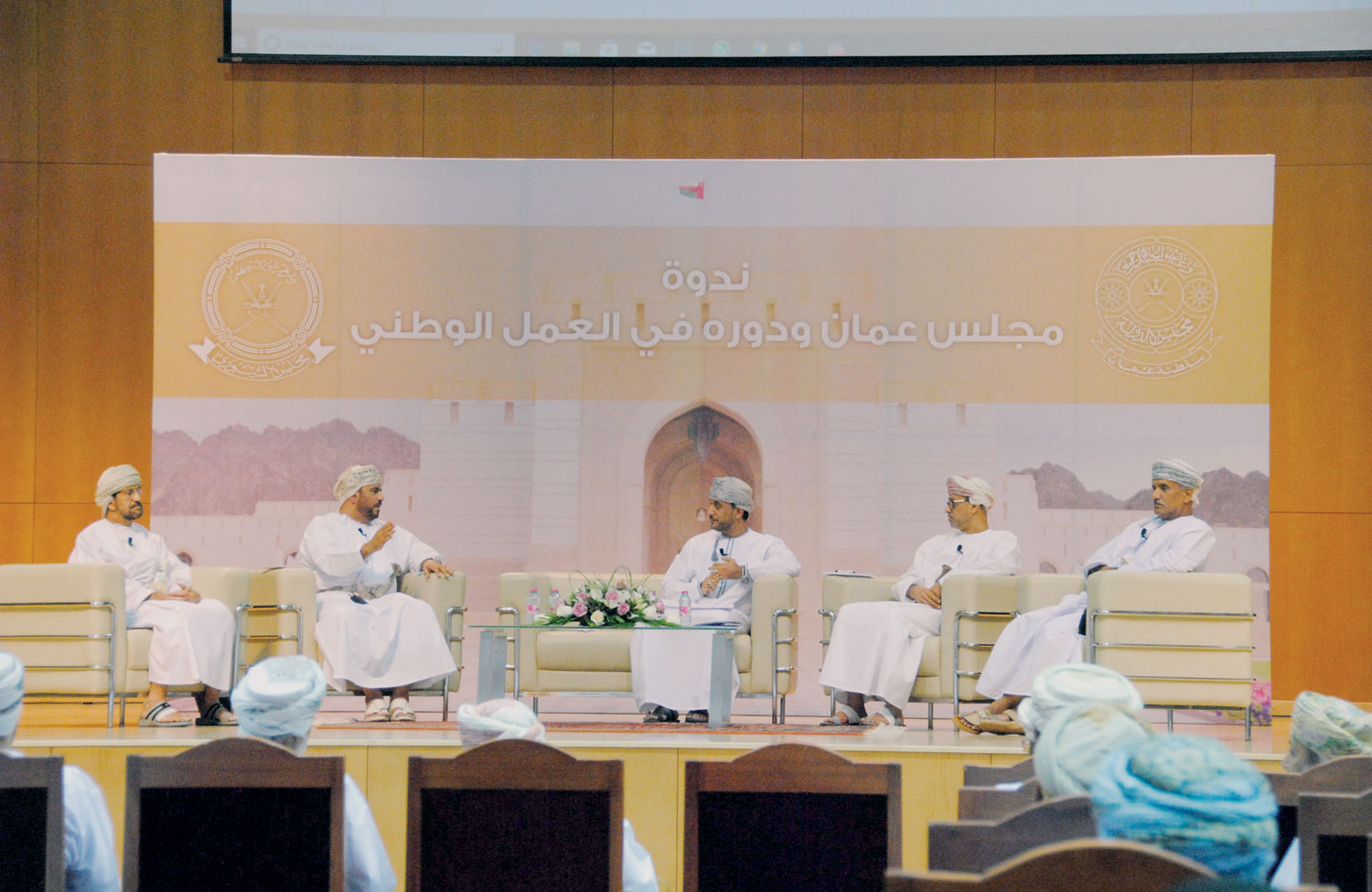

MUSCAT: The State Council and Majlis Ash’shura held a seminar on Tuesday entitled ‘Oman Council and role in national action’, sponsored by Mohammed bin Sultan al Busaidy, Minister of State and Governor of Dhofar, at the Sultan Qaboos Youth for Culture and Entertainment Complex in Salalah. Dr Khalid bin Salem al Saidi, Secretary-General of the State Council, opened the seminar and welcomed the participants and the audience.
He said the seminar relates to the 48th anniversary of the Blessed Renaissance, which marks the commencement of the building of state institutions, the pillars of which are the three basic institutions: executive, legislative and judicial backed by the lofty vision of His Majesty Sultan Qaboos.
Praising the efforts of the festival, he noted the continued efforts to develop its related activities.
The participation is yet another initiative of the State Council and Majlis Ash’shura to take part in various activities with a view to contribute to the dissemination and deepen awareness among all segments of society and to publicise the role of the two councils and their overall contribution.
The focus of the seminar is to highlight the interest in the establishment of democratic rules and community participation.
He thanked and appreciated the sponsors of the seminar, the officials of the Sultan Qaboos Youth for Culture and Entertainment Complex in Salalah for hosting its activities. He also thanked the social media platforms which contributed to the dissemination of information about the event through various websites.
The seminar was launched by Dr Khalid bin Salem al Saidi, Secretary-General of the State Council, Dr Ahmed bin Ali al Mashikhi, State Council Member, and from Majlis Ash’shura Mohammed bin Abu Bakr al Ghassani, Deputy Chairman of Majlis Ash’shura, and Shaikh Ali bin Nasser al Mahrouqi, Secretary-General of Majlis Ash’shura.
Participants discussed the themes of the seminar, namely the interest in the establishment of democratic rules and community participation since the beginning of the Blessed Renaissance, the gradual introduction of the institutional application of the Shura and its impact on the strengthening of the consultative practices in the Sultanate.
Other aspects include the Majlis Ash’shura and the use of parliamentary instruments in the exercise of supervisory powers, the role of the State Council in enriching the systems of legislation and parliamentary studies in various fields, and the harmony, coordination and complementarity between the State Council and Majlis Ash’shura, and its impact on the strengthening of the practice of Shura in the Sultanate, as well as on the Secretariat and its pivotal role in promoting performance of the two councils.
They also highlighted the practice of institutional development in the Sultanate which has progressed in a manner consistent with the process of comprehensive development and which responds to the needs of every stage of evolution, pointing out that one of the most striking aspects of this development is the strengthening of citizen participation in decision-making; development with regard to the selection of members and raising the awareness of society about the importance of the institutional application of irrigation.
The Omani experience, distinguished from the practice of the Gulf in terms of openness to citizens and civil society institutions, as well as the early registration of women’s presence in the institutional practice of the Sultanate of Oman, was underscored.
The participants addressed the coordination and cooperation between the two Councils and their positive impact on the improvement of the practice in the Sultanate, thereby contributing to the promotion of the country’s progress and prosperity. The complementarity between the two Councils and the Council of Ministers and their role in identifying visions that would help resolve the challenges facing the development process was also discussed.
The aim of the symposium was to contribute to strengthening the efforts of the two Councils to raise awareness among the various segments of society and to highlight the evolution of the institutional practice of Shura.
Oman Observer is now on the WhatsApp channel. Click here



